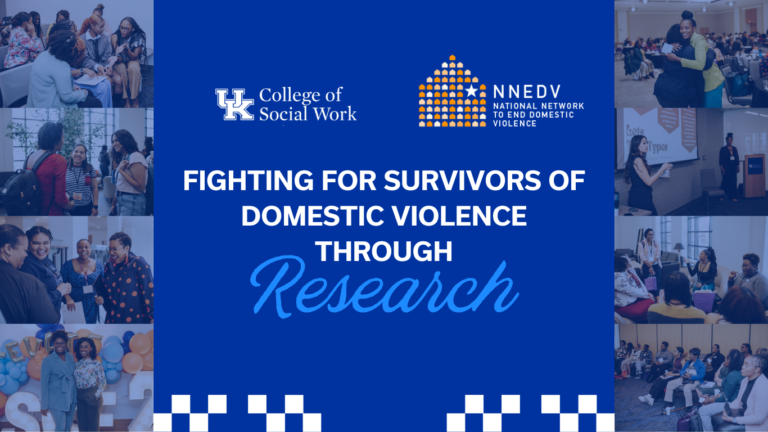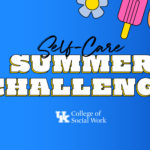Lexington, KY – In an era where domestic violence remains a critical and pervasive issue, the University of Kentucky College of Social Work (CoSW) stands out for its unwavering commitment to combatting this societal challenge.
The first statewide report on Domestic Violence released by Team Kentucky in June 2023 underscored the alarming prevalence of this issue, with over 45% of women and 35.5% of men in the commonwealth experiencing intimate partner violence (IPV) in their lifetimes.
Drs. Kathryn Showalter and Laneshia Conner, alongside doctoral candidates Stephanie Ratliff and Rujeko Machinga-Asaolu were invited to lead multiple sessions during the National Network to End Domestic Violence (NNEDV) 7th Annual Economic Justice Summit.
“We were invited to share findings on often-overlooked IPV factors, such as co-occurring substance misuse, the economic impact of domestic violence, the vulnerability of older adults, psychological abuse, and workplace violence protection orders,” said Showalter. “It was an extremely rewarding and fruitful effort after years of building positive relationships at NNEDV.”
Dr. Kathryn Showalter, a leading researcher at UK, has secured two pilot grants from the University of Kentucky’s Center for Research on Violence Against Women (CRVAW) and the Center for Clinical and Translational Sciences (CTTS).
Dr. Laneshia Conner is an assistant professor at COSW, a second-year CTTS DREAM Scholar and a recipient of the University’s BIRWHC grant.
Stephanie Ratliff, CoSW Director of Social Work Field Education and doctoral candidate, shared that she sees the role of peer-reviewed research on IPV as a collaborative tool to empower domestic violence programs and shelters.
“Limited or inaccurate data can have a detrimental impact on services for survivors and critical funding decisions,” Ratliff explains. “Research is pivotal in bridging the gap between empirical evidence and practical application, enhancing services and guiding targeted investments. I see our research as a partnership.”
The group’s collaborative research particularly emphasizes the economic impact wrought by IPV, including perpetrators’ financial sabotage and employment interference. This can leave survivors financially dependent and struggling to secure economic independence.
“Abusive partners strategically sabotage their victims immediate financial security as well as their ability to maintain careers into the future” Showalter said. “These findings are especially relevant for female dominated sectors, like nursing in which their is opportunity to advance and thus opportunity to control.”
Shelters and domestic violence programs often lack the resources to conduct peer-reviewed research, focusing their efforts on providing survivors with immediate needs like housing, food, transportation, and childcare.
This team’s research not only addresses economic sabotage and employment interference by perpetrators but also strengthens domestic violence programs through empirical evidence crucial for securing funding. Their research focuses on empowering these programs to offer comprehensive services, including harm reduction strategies and policy changes to combat discriminatory practices, thus supporting IPV survivors’ journey towards safety and stability.






